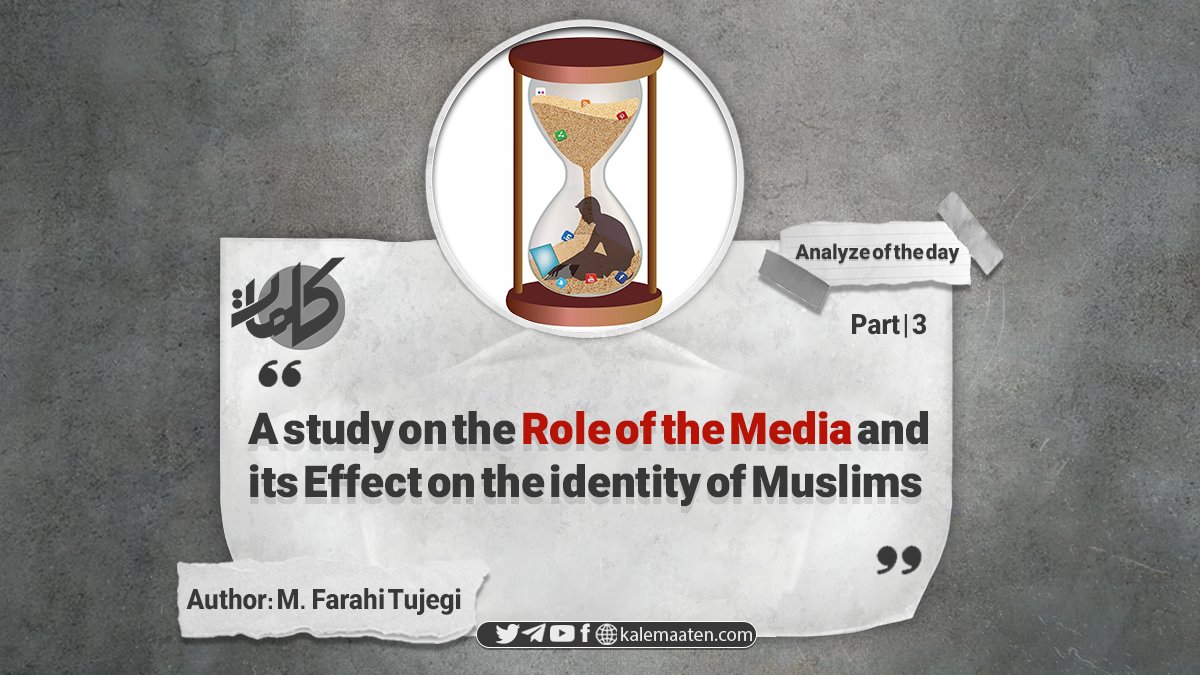Author: M. Farahi Tujegi
A Study on the Role of the Media and Its Effect on the Identity of Muslims: (Part Three)
The Impact of Media on Family Relationships:
In the previous note, we discussed the formation and history of media. In this article, we will focus on the impact of media on family relationships. The Internet and mass communication tools—by encroaching upon the private space of families, especially the younger generation—have taken control of transforming the social and cultural environments of their audiences, gradually substituting Western societal values for the identities of users without resistance.
Today, Western media and powerful advertising tools have gained a significant foothold within third-world families. The emergence of modern communication technologies, along with their benefits and conveniences, has led to various anomalies and numerous problems. Therefore, this note will briefly identify, prevent, and mitigate the destructive and impactful effects of mass media on family behavior and conduct. Additionally, the author will examine the most significant damages caused by communication tools on family relationships and propose solutions to combat and reduce their threats.
Family has been the primary social institution and foundation of societies throughout human history. Strengthening this sacred and fundamental structure, as well as supporting and guiding it toward its true and exalted position, contributes to the reform of the larger human community. Conversely, neglecting it leads humanity away from true life and into the abyss of destruction and error. Islam, as a human-building religion that shapes a virtuous life, emphasizes honoring and respecting the family, presenting it as the center of education and a haven of affection and mercy. The purpose of forming a family is to meet the material, emotional, and spiritual needs of individuals, including achieving peace and tranquility.
Definition of Family
The family constitutes the essential core of the kinship or marriage relationship among its members (Shahla Azzazi, Sociology of Family, Roshangaran and Women’s Studies Publications, 1997, p. 10). The family is the fundamental pillar of society, the building block of human life, the cornerstone of the community, the main center for preserving traditions, norms, and social values, and the foundation of social bonds and relationships. It is a unit formed through marriage, regarded as a safe space for living and a small social sanctuary since its inception, whose profound impact on all aspects of individuals’ lives—especially children—is undeniable. However, this educational system, like any other, is also subject to bitter events, internal insecurity, emotional disintegration, and threats that must be confronted.
The family is an important social institution. It has vital functions, and if weakened or destroyed, the foundation of the family collapses. The family is the primary natural conduit for transferring culture and traditions from one generation to another. If the pillars of the family become weak, the thread of culture, beliefs, religion, and moral values will also weaken, leading to the destruction and disintegration of customs and traditions. In societies where there is a conflict between family culture and the prevailing culture, individuals who are family-oriented strive to preserve their desired culture within the family and protect themselves from the incursions of the dominant culture that contradicts their values.
Media and Family
The least harmful effect of media on the family is the reduction of emotional communication among family members, as modern and uncontrollable devices—especially television and the Internet—eliminate opportunities for verbal communication and dialogue, the fulfillment of emotional needs, empathy, and mutual respect. In such families, the importance of deep emotional bonds is diminished, turning the family into a neutral and ineffective group, ultimately leading to a breakdown in connections and internal disintegration.
The functions of mass media, due to their diverse roles and rapid changes, have gradually supplanted interpersonal and face-to-face communication, resulting in an individualistic environment instead of a collective and emotional space within the family. Today, Western media is intent on weakening the family unit, utilizing various communication tools, including television, print media, the Internet, and cinema, each with its unique role. A close examination of the volume and content of programs produced by influential media worldwide highlights this acute issue and widespread dilemma.
Other problems that arise from these media include the following:
1. Promotion of Violence: One of the most significant negative consequences of films and programs on satellite networks is the increase in violence within families, igniting conflicts and destabilizing their foundations.
2. Reinforcement of Misleading Beliefs About Emotional Issues: Misleading advertisements in the media, which are constantly presented in incorrect ways, can foster false beliefs and the acquisition of incorrect information in interpersonal relationships.



